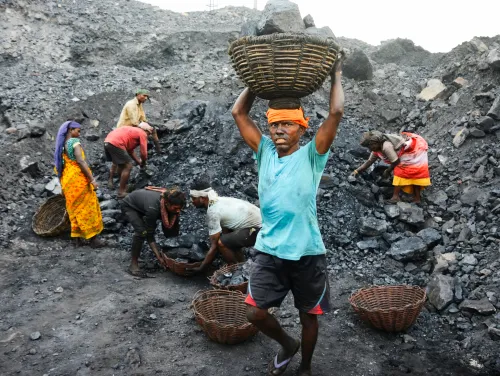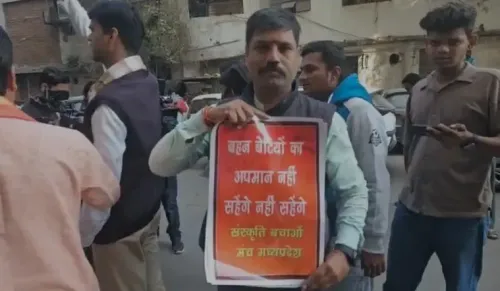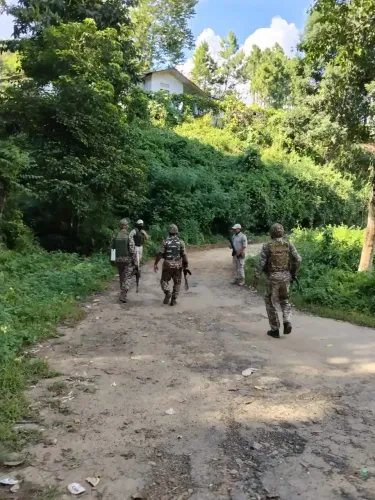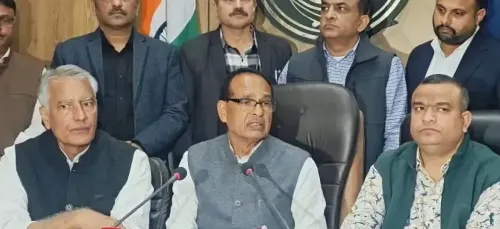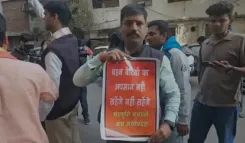Has Rajasthan's RERC Approved Tariff for a 1000 MWh Battery Energy Storage System Project?

Synopsis
Key Takeaways
- RERC approved a 1000 MWh BESS project.
- Lowest tariff rates in India.
- RRVUNL to implement under BOO model.
- VGF support from the Central government.
- Potential savings of Rs 1 crore daily.
Jaipur, June 18 (NationPress) The Rajasthan Electricity Regulatory Commission (RERC) has officially sanctioned the tariff for a standalone Battery Energy Storage System (BESS) project with a capacity of 1000 megawatt-hours (MWh).
This approval allows the rapid enhancement of energy storage infrastructure within the state, as the RERC has accepted the tariff rates proposed by various bidding energy companies.
The project will be executed by Rajasthan Rajya Vidyut Utpadan Nigam Limited (RRVUNL) using the Build-Own-Operate (BOO) model, supported by Viability Gap Funding (VGF) from the Government of India.
Minister of State for Energy (Independent Charge), Hiralal Nagar, noted that several prominent companies took part in the competitive bidding process. The approved tariff is between Rs. 2.21 lakh and Rs. 2.24 lakh per MWh per month, marking the lowest rate in India to date.
The RERC has confirmed that the tender process managed by RRVUNL was conducted fairly, transparently, and in alignment with market standards. This initiative is in sync with the Central government’s directives regarding battery storage systems, which aim to enhance grid stability and effectively integrate renewable energy sources.
Hiralal Nagar highlighted Rajasthan's commitment to becoming a green energy hub. The BESS project will facilitate the storage and utilization of energy generated from solar and wind sources according to demand, thereby significantly improving energy efficiency.
The Central government is providing VGF assistance of Rs 27 lakh per MWh for these initiatives. The BESS installations are planned at strategically selected sites, including grid substations in Jaipur and Kota, as well as power stations in Suratgarh and Giral, all chosen for their operational and technical viability.
Implementing BESS will diminish reliance on costly peak-hour power purchases by distribution companies (DISCOMs), potentially leading to savings of up to Rs 1 crore per day.
Devendra Shringi, Chairman and Managing Director of RRVUNL, mentioned that the Union Ministry of Power has recently designated an additional 4,000 MWh BESS capacity to Rajasthan.
With this new allocation, a VGF of Rs 18 lakh per MWh will be sourced from the Power System Development Fund. Shringi asserted that Rajasthan is rapidly becoming a national frontrunner in battery energy storage, with the state government targeting the development of 18.5 GWh of battery storage by 2028-29.
Beyond the 1,000 MWh BESS project by RRVUNL, NTPC Vidyut Vyapar Nigam has initiated separate tenders for an additional 1,000 MWh project. This is in line with the state’s budget announcement to establish 2,000 MWh of battery energy storage capacity, which is anticipated to draw investments of approximately Rs. 2,000 crore.

